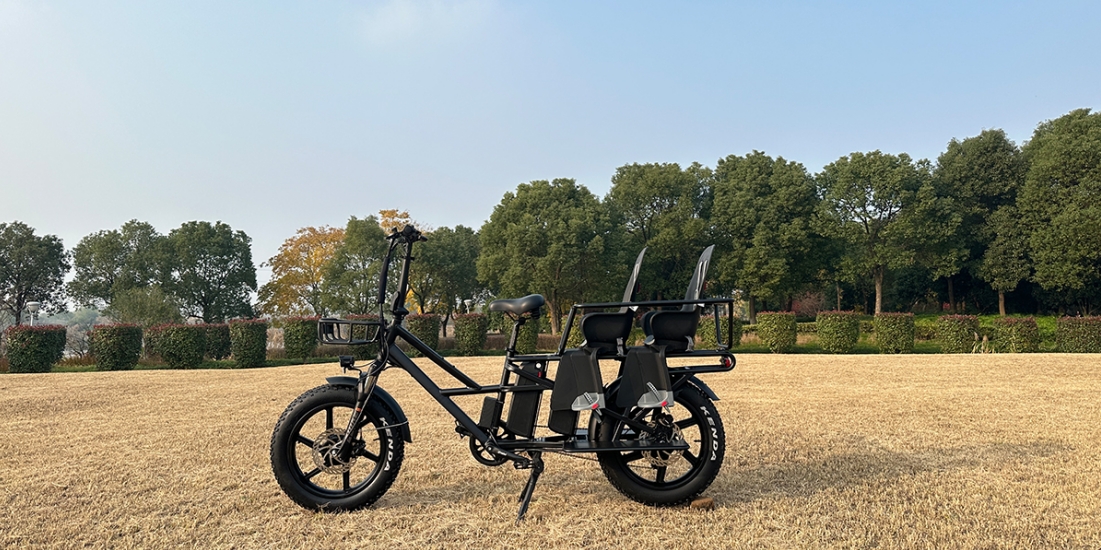As urban areas continue to grapple with congestion, pollution, and the need for sustainable transport solutions, electric cargo bikes are emerging as a practical and innovative alternative for both businesses and individuals. Combining the utility of traditional cargo bikes with electric assistance, these vehicles offer a versatile and eco-friendly way to transport goods across cities.
Electric cargo bikes are essentially bicycles enhanced with an electric motor designed to assist with pedaling while offering ample space for carrying cargo. They come in various configurations, from long-tail designs that extend the bike's rear to accommodate larger loads, to front-loading models where cargo space is integrated into the front fork. Some versions feature sizable cargo boxes or platforms, making them ideal for transporting everything from groceries and packages to even small furniture items. ### Benefits of Electric Cargo Bikes

1. Sustainability: One of the most compelling advantages of the electric cargo bike china is their minimal environmental impact. They contribute to reducing traffic congestion and lowering carbon emissions, as they replace gas-powered vehicles for short-distance delivery and transportation tasks.
2. Cost-Effectiveness: While the initial investment in an electric cargo bike might be higher compared to a traditional bike, the long-term savings are significant. Owners reduce fuel costs and maintenance associated with motor vehicles, and many cities offer incentives for using eco-friendly transport options.
3. Health and Well-being: Riding an electric cargo bike is not only a sustainable transportation option but also a great way to incorporate physical activity into daily routines. The electric assist allows riders to manage heavier loads without the strain of pedaling a fully loaded bike, encouraging more people to cycle for everyday tasks.
4. Versatility and Convenience: Electric cargo bikes are highly versatile and can serve various purposes. Businesses are utilizing them for local deliveries, while families use them for errands, school runs, and leisure activities. The ability to carry substantial loads without needing a vehicle makes them particularly attractive in urban settings.
5. Reduced Road Traffic: As more people embrace electric cargo bikes for commuting and errands, the reliance on cars diminishes, promoting smoother traffic flow and reducing the physical footprint of transportation in crowded cities.
Despite their numerous benefits, electric cargo bikes face several challenges. Limited infrastructure, such as safe bike lanes and parking spaces, can deter potential users. Additionally, the upfront cost may be prohibitive for some individuals and small businesses, although prices are decreasing as the market grows.
Moreover, education and awareness about the capabilities and benefits of electric cargo bikes are essential. Many people are still unfamiliar with the technology and may not understand how to integrate these bikes into their daily lives.
Looking ahead, the future of electric cargo bikes in urban transportation appears promising. Cities worldwide are investing in bike-friendly infrastructures, implementing regulations to promote cycling, and other sustainable transport methods. This trend indicates a growing acknowledgment of the need for alternatives to traditional vehicle use.
As cities continue to evolve and adapt to challenges like pollution and traffic congestion, electric cargo bikes could play a crucial role in shaping a more sustainable and efficient urban transport landscape. By embracing this innovative solution, we can contribute to a cleaner, healthier, and more connected future for our communities.
In conclusion, lantu electric cargo bikes offer a compelling and practical solution that benefits individuals, businesses, and the environment. With the right support and infrastructure, they can significantly contribute to modern urban living, promoting sustainability and well-being for all.